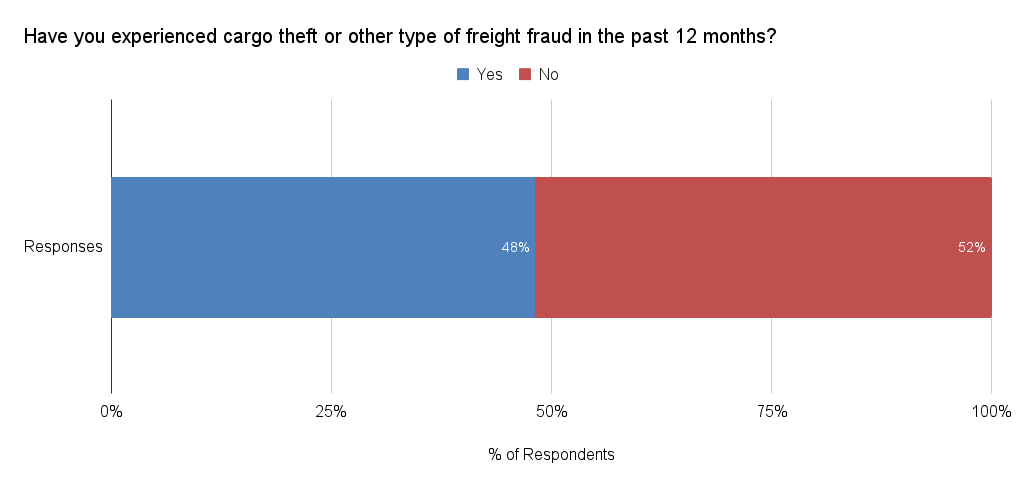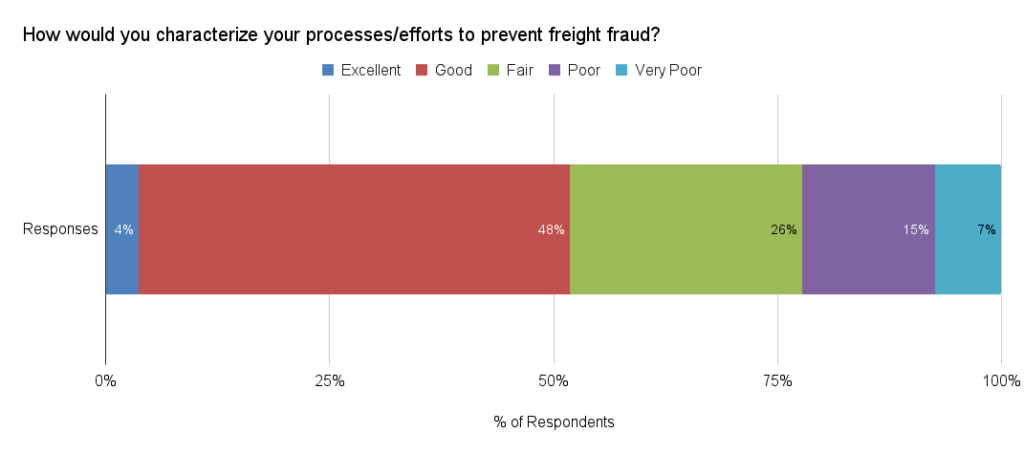Author’s Note: Yes, it’s Friday, the day I typically highlight the supply chain and logistics news that caught my attention this week. But this was a very quiet week for news — maybe Labor Day has turned into Labor Week? Anyway, since there wasn’t much news to write about, I decided to highlight some Indago research results related to freight fraud instead. Maybe next week will be more eventful. Have a meaningful weekend!
Freight fraud and theft is a growing problem. CargoNet, for example, “documented 925 incidents [of cargo thefts] in the first quarter of 2024, with an average stolen shipment value of $281,757,” as reported by Pamella De Leon in CCJ back in May. “A common [method of theft] is through fraud, including deceptive means to steal someone’s identity, company, email or domain, and then taking the load.”
Have you experienced cargo theft or other types of freight fraud in the past year? How would you characterize your processes/efforts to prevent freight fraud?
We asked members of our Indago supply chain research community — who are all supply chain and logistics executives from manufacturing, retail, and distribution companies — those questions in April 2024.
Almost half our member respondents (48%) said that they have experienced cargo theft or other type of freight fraud in the past 12 months.

A little over half the respondents (52%) characterized their processes/efforts to prevent freight fraud as either “Good” (48%) or “Excellent” (4%). At the other end of the spectrum, 22% characterized them as “Poor” (15%) or “Very Poor” (7%).

“We haven’t even begun to think about mitigating freight fraud, which could introduce substantial risk as we scale,” said one Indago supply chain executive.
Here are some other comments posted by our members:
“We have had a couple 3PL trailers broken into at truck stops. A few cases of frozen food products have been stolen, which puts the entire shipment into question. We are considering additional security options (e.g., pad locks, bolt seals, etc.)”
“Freight fraud has become a much more top of mind issue in the past couple of years, unfortunately.”
“Most freight fraud happens as soon as the container is delivered to the yard, especially on Friday evenings (we are closed on weekends, so the theft is not noticed until the warehouse opens on Monday). The best way to prevent freight fraud is to ensure there are no new containers pulled out on Friday or left unattended for unloading over the last working day of the week.”
“Our pool of carriers is very small and they’re long-term partners. We are very diligent and have a thorough onboarding and vetting process in place per our insurance guidance and requirements.”
For additional insights from the research, Indago members can download the report from our website.
How about you? Have you experienced freight fraud or cargo theft in the past year? What actions, if any, are you taking to prevent it? What do you believe are the biggest challenges in addressing this problem? Post a comment and share your perspective!
(For related commentary on this topic, please read “Editor’s Pick: Reduce The Risk Of Freight Fraud” and “3 Strategies for Shippers to Combat Rising Freight Fraud.”)










